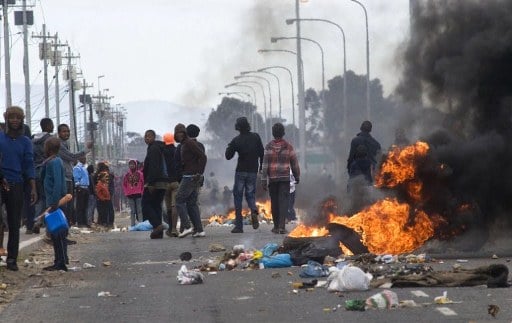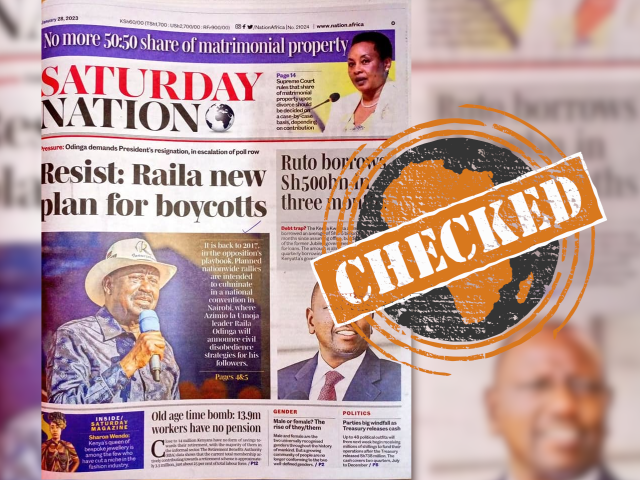According to a report quoted in the Cape Argus on 11 September, the level of violent unrest in South Africa is rising, and if the trend continues over a prolonged period "it has the potential to spread and develop into a fully-fledged revolt".
The explosive claim, originally made in 2009 and repeated in August this year, came in a news report about a protest in the Touws River district in Western Cape the previous day.
On 10 September, hundreds of residents forced the closure of the N1 national highway in a protest over the lack of public services in the district and were dispersed by police using tear gas, rubber bullets and a water cannon.
This latest unrest came in the middle of weeks of trouble in the mining belt, where battles have been taking place almost daily between police and striking miners and their supporters.
'The potential to spread and develop into a fully-fledged revolt'
Analysing the events, the newspaper quoted an article by Dr Johan Burger, a senior researcher with the Institute for Security Studies, published in August 2012, about an apparent rising trend in levels of unrest in the country.
Taking figures from published South African Police Service (SAPS) reports, it shows the number of peaceful ‘crowd management’ incidents in South Africa rising sharply, up by 46 percent between 2004/5 and 2010/11, climbing from 8,004 to 11,680, according to the SAPS figures.
And figures show the number of incidents recorded as 'unrest' - i.e. requiring arrests and the use of force - rising by 56 percent from 622 to 971.
The paper quoted Burger's conclusion, first delivered in 2009 and reiterated in that report, that if violent protests were allowed to continue over a prolonged period, they have "the potential to spread and develop into a fully-fledged revolt”.
Unrest - a dip then a big rise
According to the annual SAPS report for 2010/11, the rising trend of unrest incidents went briefly into reverse in the year to March 2011, with the number of peaceful incidents rising but violent protest falling slightly.
According to the report, in the 12 months up to the end of March, the number of 'crowd management incidents' rose by 42 percent from 8,907, the previous year, to 12,651, but the number judged to be "unrest", fell to 971 from 994 in the previous twelve months.
 With the football World Cup taking place in South Africa in 2010, it is not surprising that crowd management incidents surged and the World Cup may in fact, have had some downward effect on unrest.
With the football World Cup taking place in South Africa in 2010, it is not surprising that crowd management incidents surged and the World Cup may in fact, have had some downward effect on unrest.However, the most recently published police figures, for the year to the end of March 2012, show the number of crowd management incidents dipping slightly from 2010/11, to 10,744, but still markedly higher than the 7,913 in 2009/10.
And they show the number of unrest incidents back on its upward trend, climbing sharply to 1,194 - up 23% from 971 a year earlier.
As Burger told Africa Check: “The central message coming out of these incidents remain the same.”
For events since April 2012, the web-based monitoring project Municipal IQ, back up his claim that protests are on the increase and becoming increasingly violent. According to a Municipal IQ report, there have been more major protests this year than any since service delivery protests started in 2004 and the year is far from over.
Conclusion
It is of course highly speculative to suggest the current unrest could grow into fully-fledged revolt if left unchecked. Firstly, the fact that many incidents take place does not mean they will come together into a broader movement. And secondly, innumerable other factors - from party loyalities to changes in police strategies and facts on the ground - can come into play.
However, from the published police figures it is evident that, despite a brief minor dip in unrest in the year of the World Cup, the upward trend in unrest since 2004 is undeniable.
Edited by Ruth Becker and Peter Cunliffe-Jones.




Add new comment